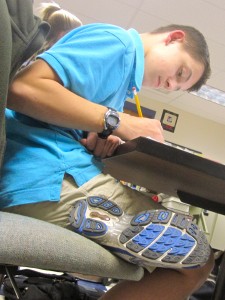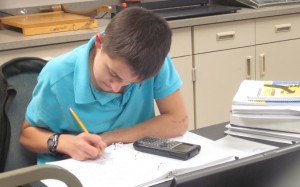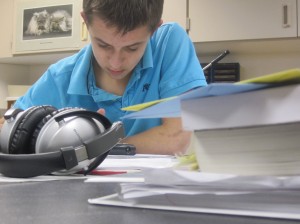Ben Clark does it again, this time winning the top individual award in the regional Siemens Competition for Math, Science & Technology for his theory on star formation.
Clark, a 15-year-old senior at Penn Manor, will be attending the Siemens Competition national finals December 2-6 in Washington D.C. where he will present his theory along with other young scholars from across the nation.

The Siemens competition is sponsored by the Siemens Foundation. They provide $7 million in scholarships annually and much of it is through the Siemens Competition. The money supports students who are doing research and making advancements in science, technology, engineering, and math.
Clark said his experience in the semi-finals was quite enjoyable, and he did not have definite expectations of winning.
“I saw everyone’s projects as comparable,” said Clark. “Anyone could have won.”
By winning the regional competition, Clark was awarded $3,000.The national Siemens Competition top winner gets a prize of $100,000 in scholarship money, however Clark is already guaranteed at least $10,000 in scholarship money just for being in the finals because last place in the finals still receives $10,000.
To be eligible to compete, students must be working on research and projects which are unique and authentic.
Clark is making real progress in the astrophysics arena.
“I was looking for binary stars and I used a very large, low-quality data set, but through my analysis I was able to get useful results,” said Clark about his data, before the regional competition began.

As he was beginning his research, Clark decided he need a topnotch mentor and contacted the Princeton University astrophysics department. His mentor is Princeton astrophysicist, Cullen Blake.
Clark decided he wanted to take a close look at binary stars for his research. He knew that binaries have significant applications to star formation so Clark and his mentor decided to focus on that.
On November 5 and 6 Clark headed out to Massachusetts to reveal his theory to some of the best in the astrophysics industry.
Clark talked with students and professors from MIT and had a fantastic time.
“All the professors were great, and the students had great projects,” said Clark.
“My initial interest in math and science occurred in kindergarten when my father started giving me math problems as a game,” Clark said in an interview for the Siemens Competition. “In less than a year, the simple addition problems we started with had been replaced by double digit multiplication and basic algebra.”

Clark has gained local fame and created a lot of buzz throughout Penn Manor. He has appeared on CBS 21 and is set to appear on WGAL channel 8 for his accomplishments which include being a National Merit Semifinalist, Model United Nations member and a National Honor Society head delegate. Clark is also involved with the Boy Scouts of America, the USA Mathematical Olympiad, USA Physics Olympiad, Princeton University Mathematics Competition and Pennsylvania Math League.
The research he has done has created a career goal for Clark. He wants to conduct physics or astrophysics research at a major research institution in the future.
By Brian Dunne